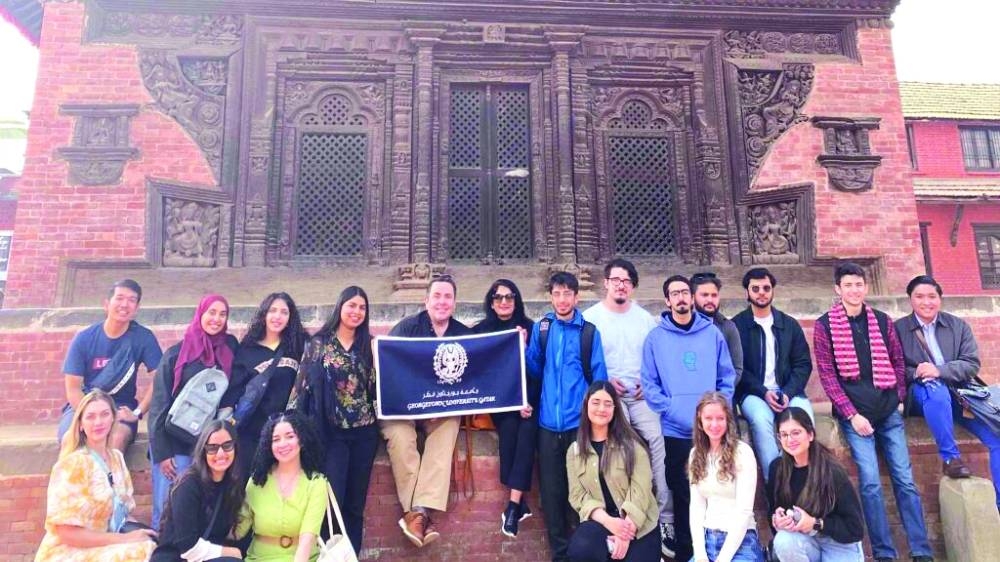For a first-hand look at the complexity of post-conflict reconciliation and the power of dialogue to secure a brighter future, 17 students from Georgetown University in Qatar (GU-Q) travelled to Nepal as part of the university’s award-winning Zones of Conflict, Zones of Peace (ZCZP) experiential learning programme.
For eight days, students explored peace-building efforts in Nepal following the 2006 peace agreement that ended a decade-long conflict between the Nepalese government and a Maoist insurgency.
The trip provided an insight into real-life people and places discussed in the three-credit 'War and Migration in Nepal' course that is part of the ZCZP programme at GU-Q, a QF partner.
During the trip, students had the opportunity to meet with representatives from civil society organisations, government officials, former insurgents, and scholars working on peace-building efforts. They also visited areas and communities affected by the conflict.
For Culture and Politics major, John Carlos Burog, the trip was a powerful reminder of the importance of empathy and understanding in conflict resolution.
“Studying a conflict from afar is one thing, but talking to people who have felt the conflict firsthand is another. Sometimes stories and accounts are just better told than written.”
Course instructor, Zahra Babar, associate director for research at GU-Q's Centre for International and Regional Studies, noted: “The opportunity to engage with complex issues in a hands-on way is an incomparable educational experience that offers a far deeper understanding of the challenges facing communities affected by conflict."
Course co-instructor Dean Brendan Hill added: “When future leaders and changemakers go beyond the classroom by connecting with people and communities, they gain cultural competency and a sense of social responsibility that inspires a commitment to working collaboratively towards a more just and equitable world.”

GU-Q students visit Nepal
